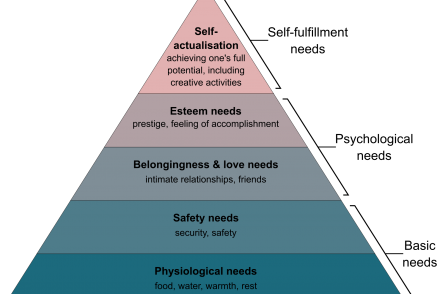Do you have a daily routine? If so, do you keep to it? And whether you do or you don’t (have one) do you fully understand the benefits of having one?
I didn’t.
Well at least not fully. For so long I’d heard countless masterminds credit routine as the root of their successes. Tim Ferris – an American entrepreneur, author, and podcaster – even wrote a book “Tools for Titans” about his optimal tried and tested five-step morning routine. Mornings matter to Ferriss because “if you win the morning, you win the day,” he writes. And he’s not wrong. However, contrary to Ferris’s research and book writing I’d just previously (before becoming an executive transformational coach) cherry-picked some of the best habits I thought would benefit me and my day. Enough sleep, early wake-up, exercise, breakfast, work. Maybe some meditation once or twice a week. That was pretty much the extent of my five-step routine and I didn’t consider what the benefits would be outside of the obvious continuous cycle of healthy habits.
Then I became a coach and put this modest little word with a magnitude of power under the microscope. For my clients wanting to experience any kind of transformation on any kind of scale, developing appropriate routines to facilitate the required behaviours and actions necessary for the specific transformation/s to take place is fundamental. And now, with this catastrophic calamity called Covid-19 confining most of the world to their homes modifying and developing a new routine is essential, not just to continue working towards a goal (no matter if the posts have shifted) but to also maintain optimal mental and physical wellbeing.
Deborah Serani, PsyD, professor of psychology at Adelphi University and author of “Sometimes When I’m Sad” also says “Studies in resiliency during traumatic events encourage keeping a routine to your day.” This includes “eating meals at regular times, sleeping, waking and exercising at set times, and maintaining social (socially distant) contact. Unstructured time can create boredom, spikes in anxiety or depression, which can lead to unhealthy patterns of coping.”
One of the main benefits of keeping a routine is that it reduces “decision fatigue,” the overwhelm and exhaustion that can come from too many options. So in the morning, rather than wonder how you’re going to structure your day and with what (workout? zoom call? make a new recipe? write a new post?) it’s better to know what you’re going to do and when. This will free up some mental capacity in a time that is draining more of our headspace than we may realise.
Now this ain’t rocket science but it is compelling. By freeing up some mental bandwidth we all have more potential to get creative and more productive and think what you can do with more time in this zone? I mean it’s certainly preferable to that downward spiral Debs above describes of depression, anxiety, boredom, and unhealthy patterns.
Personally, I’ve found the best way to create any routine is to write down the things that are important to me, what I want to achieve and why, how it will be and feel when I do them, where it will leave me and then what will happen if I don’t do them. I have an optimal weekday routine with adaptations if I’m unwell. I also have a roughly sketched weekend routine which gives me room to rest, engage in more fun, friends, family, less work, and recharge to hit Monday all guns blazing.
The aim of my current weekday routine is to get 9 (if more great) hours of sleep a night, get up at 8 AM (later than pre-CV I admit), get dressed, have coffee, do a short 10-minute breath work session followed by a 30-60 minute strength session or cardio (run) workout. Then it’s a healthy breakfast, shower and a solid few hours of work. Next up is lunch and a stretch of my legs or playtime with my niece (maybe ten minutes) before back to another solid session of work. I then go out for a 30-60 minute walk before supper and in this time I might listen to a podcast or FaceTime with friends. My little niece can also come into the picture here! After supper in the evening I write what work I need to get done the next day and journal. Next up there’s time for reading, playing with my little niece or attending a webinar/masterclass. My current favourite live session is by Breathpod with founder Stuart hosting live breathing sessions which are truly transformational. Check out @breathpod IG for info on upcoming ones. Before bed it’s my gratitude list. And that’s the basis of my current optimal weekday routine. No bells or whistles here just simple and I’ll admit highly effective.
On this note I will answer my own question I posed to you at the start; do I always keep to it? I aim to but sometimes if (like yesterday) I’m feeling under the weather I won’t exercise, I’ll give myself permission to sleep more and I will save energy where I can. Allow yourself room for this and you can also plan a routine for these days. Some days do suck (yesterday you M-F! with a full moon and everything) and that’s ok. Maybe you do the opposite of your optimal routine and you know what – that’s ok too. This is what being human is about. Sometimes we veer off-course. Sometimes we own it like nobody’s biz. But when we know how good it feels and the benefits of having a kick-ass routine and what we can be and achieve with it the sucky days won’t happen as much and when they do you’ll look forward to getting back to your best.
Image via Trover.com





No Comments